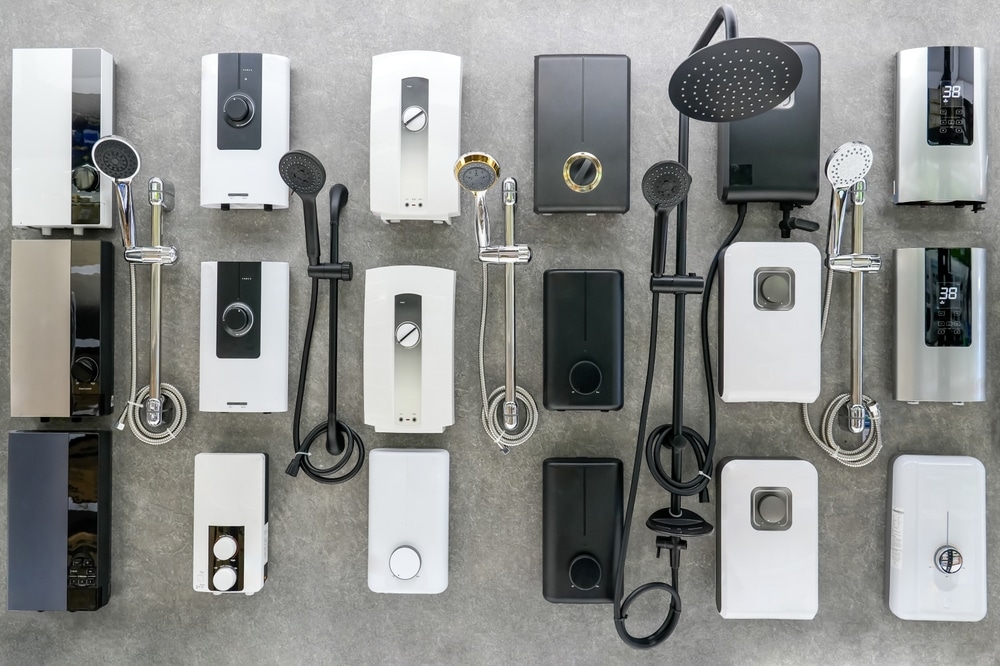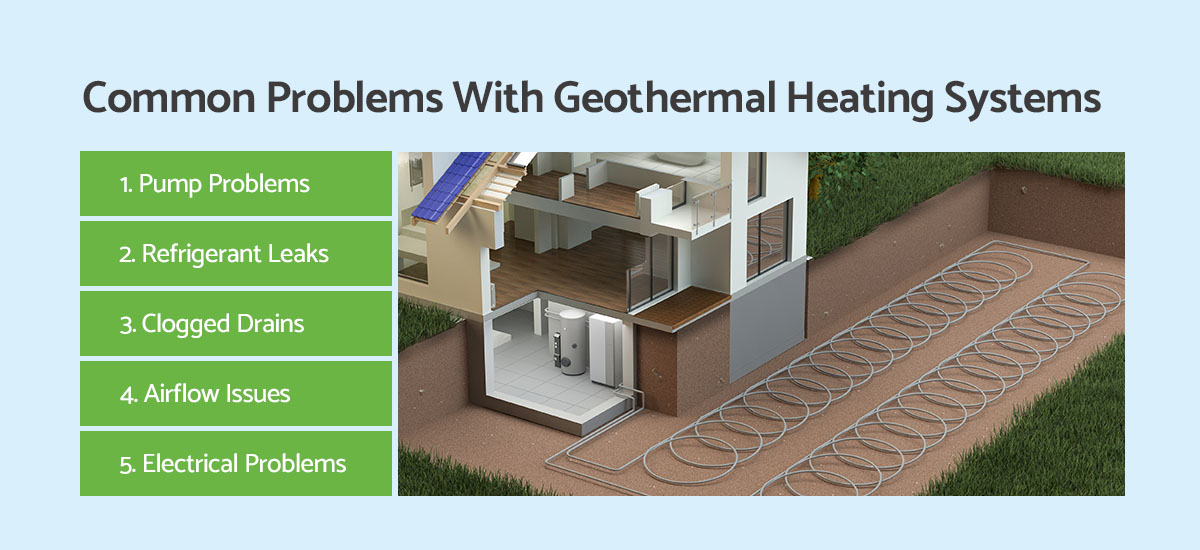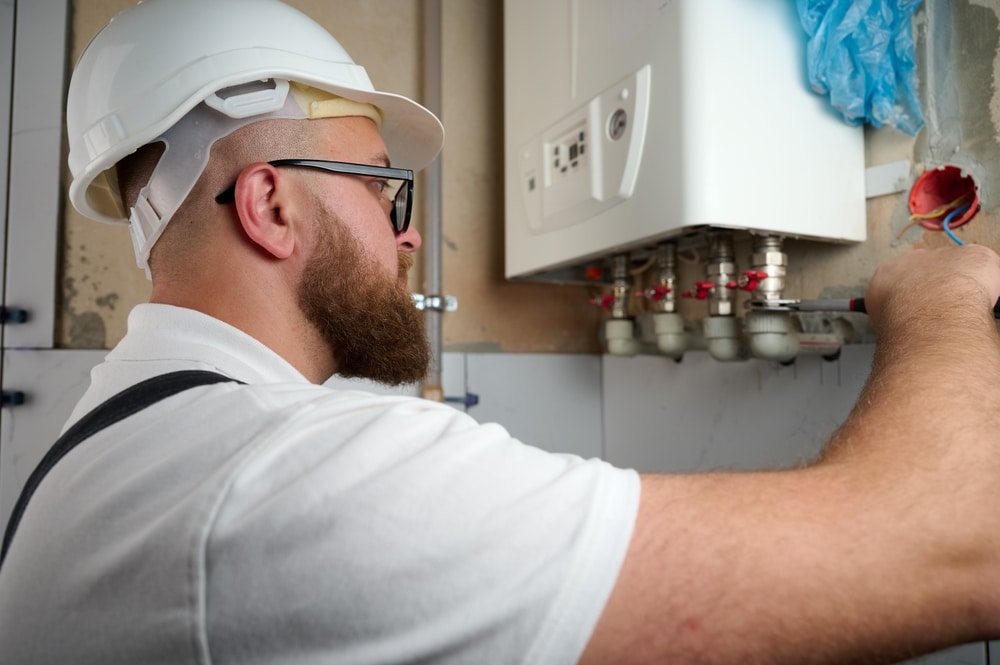
Have you ever been in the middle of a lovely hot shower, only to find an icy blast of cold water appear out of nowhere? Having a steady stream of hot water is essential for every home, but when it comes choosing between a tankless water heater vs. tank, which is the right option for you?
GreenBox Home Services is here to help break down the differences between tankless and traditional tank water heaters. There are several factors to consider when weighing the tankless water heater vs. tank water heater decision.
If you’re ready to install a new water heater, call or schedule service today!
Overview of Water Heaters
Water heaters are home appliances tasked with raising the temperatures of water within the home for numerous uses. This is done through a heat transfer process that uses either fuel or electricity.
Hot water is needed for many everyday activities like showers, laundry, and dishes. Without hot water in our homes, showers wouldn’t be comfortable, and other necessary home responsibilities would be far more difficult—if not impossible—to complete.
Tank Water Heaters
This type of heater increases temperature through the use of electricity or another kind of fuel. Once the water is at the right temperature, it will be stored in the tank at a maintained temperature until it is needed.
Pros:
-
Lower initial cost
-
Simple installation process
-
Familiar technology and widespread availability
Cons:
-
Limited hot water supply
-
Higher energy consumption
-
Larger space requirement
-
Shorter lifespan compared to tankless models
Tankless Water Heaters
A tankless water heater removes the need to store water at a temperature. Instead, when you need it, cold water flows through a heating element that instantly heats it, giving you hot water on demand.
Pros:
-
Unlimited hot water supply
-
Energy efficiency and lower operating costs
-
Compact size and space-saving design
-
Longer lifespan
Cons:
-
Higher initial cost
-
More complex installation process
-
May require upgrades to existing plumbing and electrical systems
Ready for a new water heater? Contact Green Box to get started!
Factors to Consider When Choosing Your Water Heater
Choosing the right water heater for your home isn’t a cut-and-dry decision. These are the key factors to consider:
Household Size and Hot Water Usage
If you have multiple members in your household, you’re probably using more hot water. Your current water heater tank may not be able to keep up with the workload your family needs. If your household is experiencing this, a larger water heater should help curb the issue.
The same goes for the other side of the equation. If your household is smaller or downsizing, it may be time to downgrade. Downgrading your water heater to compensate for the decrease in household size will cut down on wasted water.
Energy Efficiency
If you prioritize appliances with higher levels of energy efficiency, make sure your water heater is an ENERGY STAR appliance. Appliances with these labels may come with a higher initial cost, but the potential for long-term savings is great. By inspecting the EnergyGuide label, you can see how each model is expected to perform and the estimated annual operating costs that come with the appliance.
Installation and Maintenance Costs
Installation costs for water heaters are dependent on factors such as the type of water heater, labor costs, unit size, parts, and potential add-ons. For a tank-based water heater, cost of installation ranges from $900 to $2,500, on average. For a tankless water heater, it’s between $1,000 and $3,500.
Maintenance on your water heater typically ranges from $75 to $300 or more. Maintenance costs can increase or decrease depending on the extent of maintenance, a single visit or maintenance plan, and the company/plumber of choice.
Space and Location
Space and location also play an important role in the various aspects of water heaters. Water heater installation in hard-to-reach areas like the basement or a corner of the attic could increase the complexity and cost of the installation. Space and location of your water heater are important factors to discuss with your local professionals.
Environmental Impact
High-efficiency ENERGY STAR units are the best appliances on the market in terms of minimizing negative effects to the environment. By choosing ENERGY STAR water heaters, sustainablity surges and your household’s carbon footprint will be reduced.
Cost Comparison of Tank and Tankless Water Heaters
Tank-based. Tank-based water heaters have a lower initial cost and a simple installation process that won’t break the bank. On the other hand, tank-based water heaters consume more energy and have a shorter lifespan.
Tankless. Tankless water heaters are going to cost more upfront, require a costly installation, and may require upgraded systems. So at the forefront, tankless water heaters are more expensive. But, tankless water heaters are much more energy efficient, don’t require as much in terms of operational costs, and have a longer lifespan.
Recap
When choosing a tankless water heater vs. a tank water heater, it’s important to understand the factors that influence their compatibility for your home. Consult with a professional at GreenBox Home Services today for personalized advice in your decision making. We’ll make sure your personal needs are met so when your next water heater is installed, it’ll be the best solution for you.
FAQs
1. How do I determine the right size of water heater for my household?
Follow these standard guidelines to determine the right sized water heater for your household:
-
1 to 2 People: 30 – 40 Gallons
-
2 to 3 People: 40 – 50 Gallons
-
3 to 4 People: 50 – 60 Gallons
-
Over 5 People: 60 – 80 Gallons
2. Can I install a tankless water heater myself, or do I need a professional?
Unless you’re a professional yourself, leave water heater installation to those who are qualified to do it. Professionals have the plumbing, electrical, and carpentry skills required for the job and a thorough understanding of state and local building codes.
3. How often do tank and tankless water heaters require maintenance?
Water heaters can give you 8 to 12 years of uninterrupted service, but with annual maintenance, you’ll minimize potential damages and lengthen its lifespan.






